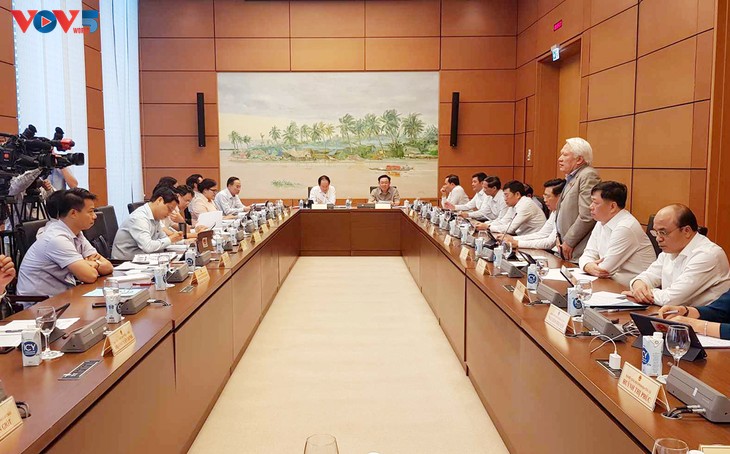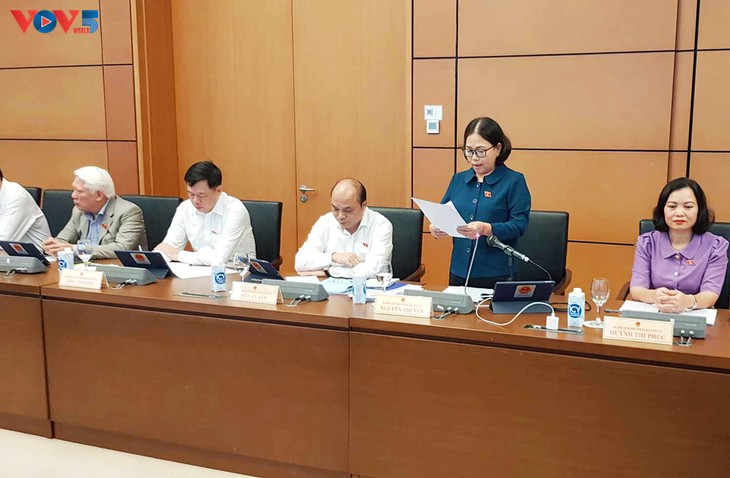(VOVWORLD) - Deputies to the ongoing session of the National Assembly on Tuesday discussed the national socio-economic situation and fiscal and monetary policies supporting socio-economic recovery and development.
 Socio-economic development and fiscal and monetary policies for economic recovery and development are high on the agenda of the NA's meeting on October 24, 2023. (Photo: Ngoc Anh/VOV5) Socio-economic development and fiscal and monetary policies for economic recovery and development are high on the agenda of the NA's meeting on October 24, 2023. (Photo: Ngoc Anh/VOV5) |
Many deputies agreed that, despite global fluctuations, Vietnam’s socio-economy remains stable and 10 out of 15 targets are expected to be met this year. The deputies noted Vietnam’s stable macroeconomy, controlled inflation, and continued major economic and social security balances. This year's economic growth is projected to reach 5%, below the 6.5% target, but comparatively strong in the global context.
 Deputy Nguyen Thi Yen from Ba Ria-Vung Tau speaks at the NA session on October 24, 2023. (Photo: Ngoc Anh/ VOV5) Deputy Nguyen Thi Yen from Ba Ria-Vung Tau speaks at the NA session on October 24, 2023. (Photo: Ngoc Anh/ VOV5) |
Deputy Nguyen Thi Yen from Ba Ria-Vung Tau province said that to ensure economic growth in the last quarter of this year and the upcoming year, the Government and National Assembly should closely follow global dynamics and tailor forecasts to Vietnam's circumstances for a flexible response plan.
"It's necessary to harmonize regulatory policies to balance growth, inflation, supply, demand, interest rates, and currency exchange rates, while coordinating monetary and fiscal policies. Furthermore, the government should devise supply, consumption, investment, and export enhancement measures," said Yen.
Yen also recommended that the government boost exports, sustain a balanced trade position, and target emerging markets like India, the Middle East, Africa, Latin America, and Eastern Europe.
The same day, the NA discussed three national target programs on socio-economic development in ethnic minority areas, new rural development, and sustainable poverty reduction.